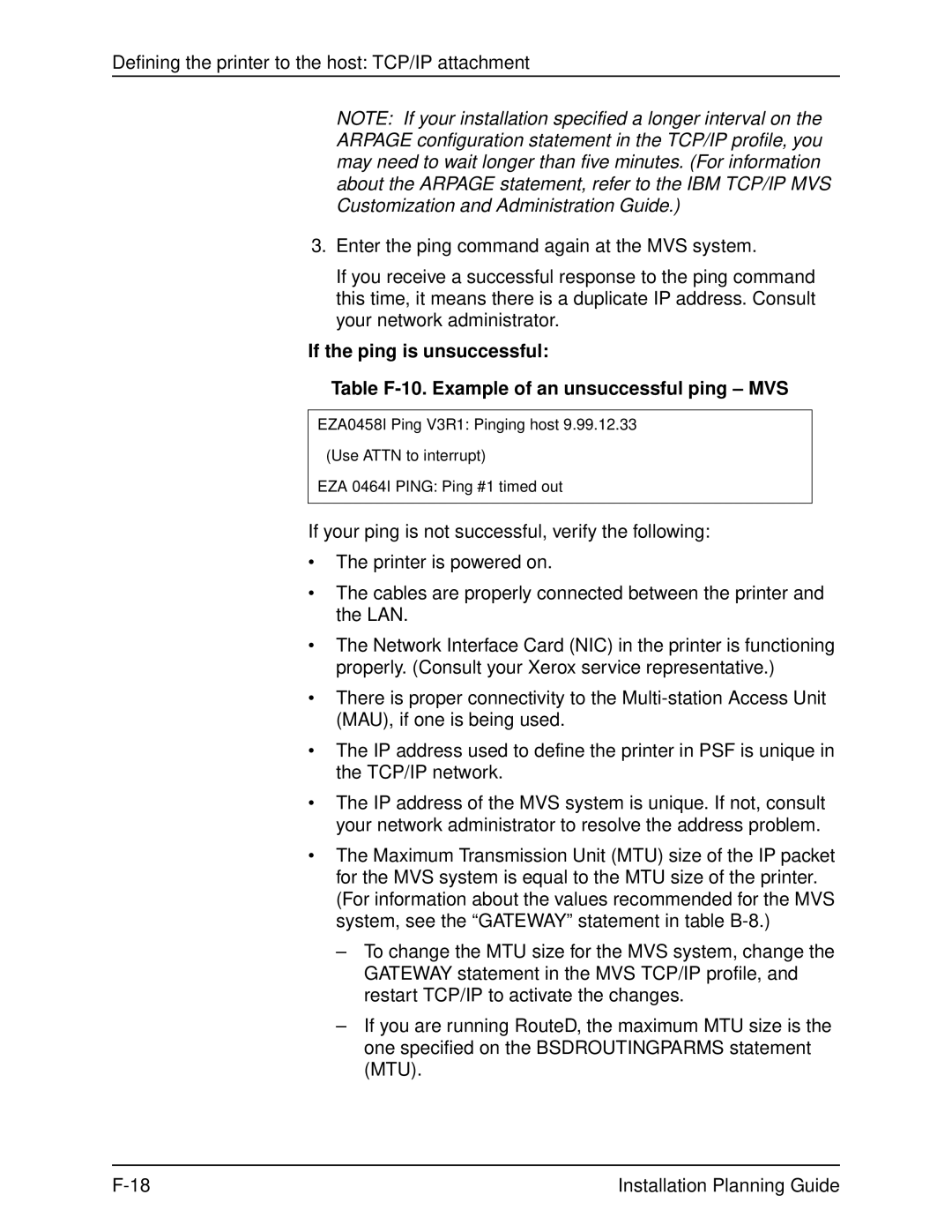
Defining the printer to the host: TCP/IP attachment
NOTE: If your installation specified a longer interval on the ARPAGE configuration statement in the TCP/IP profile, you may need to wait longer than five minutes. (For information about the ARPAGE statement, refer to the IBM TCP/IP MVS Customization and Administration Guide.)
3. Enter the ping command again at the MVS system.
If you receive a successful response to the ping command this time, it means there is a duplicate IP address. Consult your network administrator.
If the ping is unsuccessful:
Table
EZA0458I Ping V3R1: Pinging host 9.99.12.33
(Use ATTN to interrupt)
EZA 0464I PING: Ping #1 timed out
If your ping is not successful, verify the following:
•The printer is powered on.
•The cables are properly connected between the printer and the LAN.
•The Network Interface Card (NIC) in the printer is functioning properly. (Consult your Xerox service representative.)
•There is proper connectivity to the
•The IP address used to define the printer in PSF is unique in the TCP/IP network.
•The IP address of the MVS system is unique. If not, consult your network administrator to resolve the address problem.
•The Maximum Transmission Unit (MTU) size of the IP packet for the MVS system is equal to the MTU size of the printer. (For information about the values recommended for the MVS system, see the “GATEWAY” statement in table
–To change the MTU size for the MVS system, change the GATEWAY statement in the MVS TCP/IP profile, and restart TCP/IP to activate the changes.
–If you are running RouteD, the maximum MTU size is the one specified on the BSDROUTINGPARMS statement (MTU).
Installation Planning Guide |
